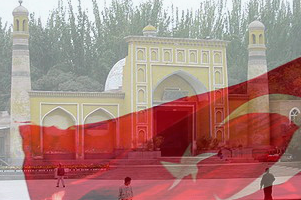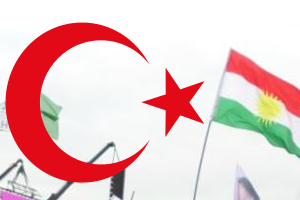What the Columnists Say
Etyen Mahçupyan in Akşam writes that the cease-fire ended because PKK started to seek independence in Rojawa, and because Turkey did not want to have a PKK state at its border. “PKK has shot itself in the foot,” he writes. Metin Münir on the t24 news site finds it incredible that PKK chose to respond to Erdoğan’s restart of the war in what he describes as the most stupid way possible, by returning to terrorism. Orhan Bursalı in Cumhuriyet writes that PKK is laying the ground for secession from Turkey. Kemal Öztürk in Yeni Şafak warns the AKP that the party is losing the public relation battle to PKK among the Kurds, and that yet another electoral disaster is looming. Şahin Alpay in Zaman writes that even though Erdoğan is the chief responsible for why calm and stability continue to elude Turkey, the fundamental reasons for this are inscribed in the genetic code of the republic.

Turkey and China: Merging Realpolitik with Idealism
By Hay Eytan Cohen Yanarocak (vol. 8, no. 15 of the Turkey Analyst)
Despite the importance and improvement of multi-dimensional Turkish-Chinese relations, Turkish decision makers have had difficulties reconciling their Pan-Islamic ideological rhetoric and the demands of realpolitik. While Ankara recognizes the need to form good relations with China, its self-assigned role as the protector of “oppressed Muslims” has, so far, trapped Turkey between realpolitik and the purism of ideology. Having acknowledged this clash, President Recep Tayyip Erdoğan has moved to neutralize the discord that has existed between Turkey’s national interests and its Pan-Islamic ideological rhetoric. Erdoğan’s new China strategy promises to pave the way for solid, stable relations between Turkey and China.

Turkey Is Not Going to Be “Normalized” Under the AKP’s leadership
By Toni Alaranta (vol. 8, no. 14 of the Turkey Analyst)
There is widespread expectation that “normalization” and democratic consolidation will follow the June 7 election, which deprived the ruling Justice and Development Party (AKP) of its majority. The talk about “normalization” and President Recep Tayyip Erdoğan becoming “isolated” presupposes that Turkey’s democratic travails emanate exclusively from Erdoğan’s power hunger, and that once this factor is eliminated, the AKP will once again become the “normalizing force” it allegedly was previously. However, “normalization” would mean abandoning not only Erdoğan but the very political narrative disseminated by the AKP during its years in power, and thus the mission of the party.
The Case for a Coalition with the CHP: the AKP Needs to Refurbish Its Image in the West
By Halil Karaveli (vol. 8, no. 14 of the Turkey Analyst)
The AKP’s loss of its absolute majority in the June 7 parliamentary election may paradoxically offer the regime the chance to refurbish its tarnished image in the West. That, at least, is how some of the leading representatives of the regime judge the present situation. A coalition government with the center-left CHP is perceived as a chance for the AKP to rid itself of the charges of authoritarianism. Western endorsement has always been critically important for AKP, and the party is desperate to regain its lost legitimacy in the West. The question, though, is why the CHP would even contemplate lending itself to a project that would only entrench the AKP regime.

Turkey’s Kurds and the Post-election Political Landscape
By Gareth Jenkins (vol. 8, no. 13 of the Turkey Analyst)
The Turkish general election of 7 June stripped the ruling Justice and Development Party (AKP) of its parliamentary majority for the first time since November 2002 and dealt a devastating blow to President Recep Tayyip Erdoğan’s hopes of replacing the country’s parliamentary system with an autocratic presidential one in which all political power was concentrated in his own hands. But, even though the election was an undoubted triumph for the pro-Kurdish Peoples’ Democratic Party (HDP), it has also left the Kurdish nationalist movement facing a number of challenges.




